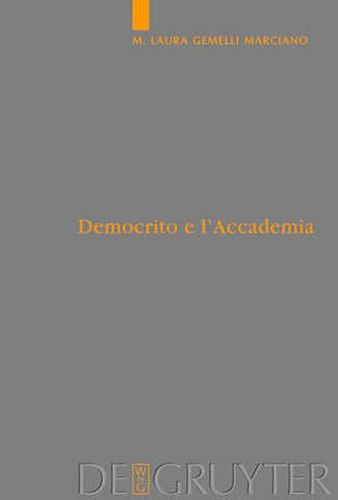Readings Newsletter
Become a Readings Member to make your shopping experience even easier.
Sign in or sign up for free!
You’re not far away from qualifying for FREE standard shipping within Australia
You’ve qualified for FREE standard shipping within Australia
The cart is loading…






How did the Ancient Greek Atomists come to assume the existence of atoms, and how did they understand their indivisibility? These are the most difficult questions facing researchers into Atomism in Classical Antiquity, and it is these questions that Laura Gemelli addresses in the present study. She re-examines the Ancients’ tradition from a new perspective, starting from the influence that academic atomism and the attendant problems and concepts had on Aristotle’s interpretation of ancient Atomism. This hitherto neglected perspective leads to a critical revision of generally accepted theses such as the origins of Atomism in Eleatism and the postulation of the atom as a solution to the aporias of infinite divisibility. The author then follows the further development of the views of Atomism put forward by Aristotle and Theophrastus as far as the Neo-Platonists. This book provides the foundations for a re-evaluation of the sources and a shift in perspective for research into the Ancient Atomists.
$9.00 standard shipping within Australia
FREE standard shipping within Australia for orders over $100.00
Express & International shipping calculated at checkout
How did the Ancient Greek Atomists come to assume the existence of atoms, and how did they understand their indivisibility? These are the most difficult questions facing researchers into Atomism in Classical Antiquity, and it is these questions that Laura Gemelli addresses in the present study. She re-examines the Ancients’ tradition from a new perspective, starting from the influence that academic atomism and the attendant problems and concepts had on Aristotle’s interpretation of ancient Atomism. This hitherto neglected perspective leads to a critical revision of generally accepted theses such as the origins of Atomism in Eleatism and the postulation of the atom as a solution to the aporias of infinite divisibility. The author then follows the further development of the views of Atomism put forward by Aristotle and Theophrastus as far as the Neo-Platonists. This book provides the foundations for a re-evaluation of the sources and a shift in perspective for research into the Ancient Atomists.